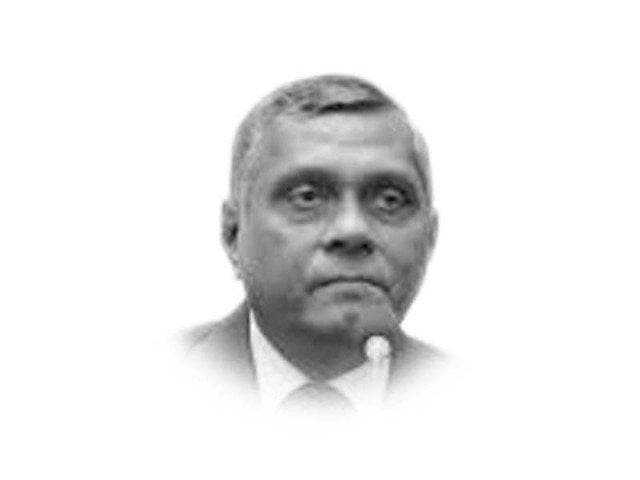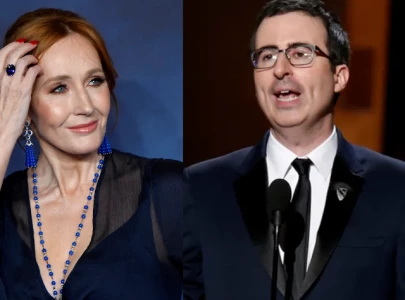
Following the assassination attempt on the life of PTI Chairman Imran Khan on November 3 and his resolve during the November 6 presser in Lahore where he announced the resumption of his long march, one can expect further augmentation of the crisis with dangerous implications.
There are serious apprehensions of the prevailing crisis, generated by both PTI and the coalition government along with non-political forces, triggering a civil war if it is not managed through a political dialogue. What will be the implications if the present crisis was mismanaged? All indicators of grave crisis — like loss of control over events, extreme danger, degree of threat, intense hostility, tension, communication gap and deadlock — are evident in the crisis engulfing Pakistan today. Barring consensus between PTI Chairman Imran Khan and Prime Minister Shehbaz Sharif to form a judicial commission under Supreme Court to probe the assassination attempt on the former, there is a huge gap between the two parties on holding free and fair early elections.
Was it known to the people that the dismissal of Imran Khan’s government under what the PTI alleges as an engineered vote of no-confidence would cause a serious crisis in the country which would deepen mistrust and antagonism between the PTI and military establishment? The vote of no-confidence was a constitutional right of the opposition, but it is alleged that the allies of the PTI government were lured into removing Imran Khan under a well-crafted conspiracy by those who feared a further crackdown on the then opposition if Khan was allowed to continue. Pre-conceived notions held by key opposition leaders, including the one living in exile on ‘medical grounds’, that if the then Prime Minister was allowed to remain in power till next elections, he would appoint an Army chief of his choice in November 2022 to enable him to win the 2023 general election and permanently put key opposition leaders behind the bar over corruption.
The “great game” to remove Imran Khan’s government got an impetus when there was a crucial meeting between PPP Co-Chairman Asif Ali Zardari and PML-N President Shehbaz Sharif in November last year in Lahore in which the two discussed the grave implications for their political future if the PTI government was not removed. Hectic lobbying to seek support from dissident PTI MNAs and coalition partners like MQM, GDA, BAP, PML-Q, BNP-Mengal and other parties began which culminated in the placement of a no-confidence motion in the National Assembly in March 2022. Foreign conspiracy, as alleged by the PTI, is another dimension of the “great game” which reflected serious trust deficit between then Prime Minister Imran Khan and American President Joseph Biden, echoed in the lack of direct communication between the two. And the rest is history. But the people of Pakistan paid a heavy price of the so-called conspiracy to remove the PTI-led government.
The then opposition parties namely PML-N, PPP and JUI-F had miscalculated the implications of the vote of no-confidence because the PTI was able to regain its popularity on removal from power on April 11. Had Imran Khan’s government been allowed to complete its term, PTI’s unpopularity would have grown to an extent that its re-election would have been extremely difficult. But the mindset of the leaders of then opposition parties was so parochial and opportunistic that they were not ready to give a chance to Imran Khan to complete his term as PM and expedited the process of the vote of no-confidence, triggering what is now seen as the mother of all crises.
To Imran Khan, the most unpardonable act was of the military establishment which looked the other way when the “conspiracy” to remove him from power was being hatched. The establishment appeared convinced that the then Prime Minister had lost people’s trust and adopted a foreign policy deteriorating relations with the US, Saudi Arabia and China. The establishment thus declared its neutrality and allowed the Imran Khan government to be removed from power. The chain of events from November 2021 till early April 2022 reflected how naïve those wielding real power were about the cost of removing the PTI government. In March, Imran Khan’s popularity graph had gone down due to an enormous price hike and his vindictive campaign against his opponents. But since April 11 onwards when his government was removed, he has fought back by exploiting the economic failures of the coalition government and pedaling the foreign conspiracy narrative to regain his lost popularity.
If the prevailing crisis is mismanaged, one can visualise three ramifications.
First is the likelihood of a civil war — something that was also mentioned by Prime Minister Shahbez during a recent press conference in Lahore and repeatedly warned about by Imran Khan. Already, one can notice outbreak of violence in different parts of Pakistan following the assassination attempt on the life of Imran Khan and the demand to launch an FIR of the incident. Failure to negotiate a peaceful management of the crisis would cause escalation and lead to violent implications. There are various models of civil wars like the Russian, Chinese and Iranian revolutions as well as the surge of violence in former Yugoslavia, Iraq and Afghanistan. But, Pakistan has not experienced the level of violence and bloodshed as witnessed in the aforementioned cases.
Second, a segment of Pakistani population, composed of PTI supporters, will be pitted against their opponents along with the men in uniform. Who will benefit from this situation is not difficult to gauge. It’s indeed our archrival India. The PML-N should have redeemed the consequences of becoming part of the vote of no-confidence for short-term gains because its power ambitions and political opportunism discredited its age-old narrative of ‘respect for vote’ and defiance against military’s intervention in politics.
Finally, if Pakistan is destabilised because of the crisis, it will serve as an opportunity for foreign powers to go move ahead with their naferious designs against our nuclear arsenal. The only way to manage the prevailing crisis in Pakistan is to hold free and fair elections in a few months from now, like in March 2023.
Published in The Express Tribune, November 13th, 2022.
Like Opinion & Editorial on Facebook, follow @ETOpEd on Twitter to receive all updates on all our daily pieces.




1731975305-0/Untitled-design-(40)1731975305-0-165x106.webp)
1731975060-0/Untitled-design-(39)1731975060-0-165x106.webp)


1729685382-0/Untitled-design-(57)1729685382-0-270x192.webp)




COMMENTS
Comments are moderated and generally will be posted if they are on-topic and not abusive.
For more information, please see our Comments FAQ